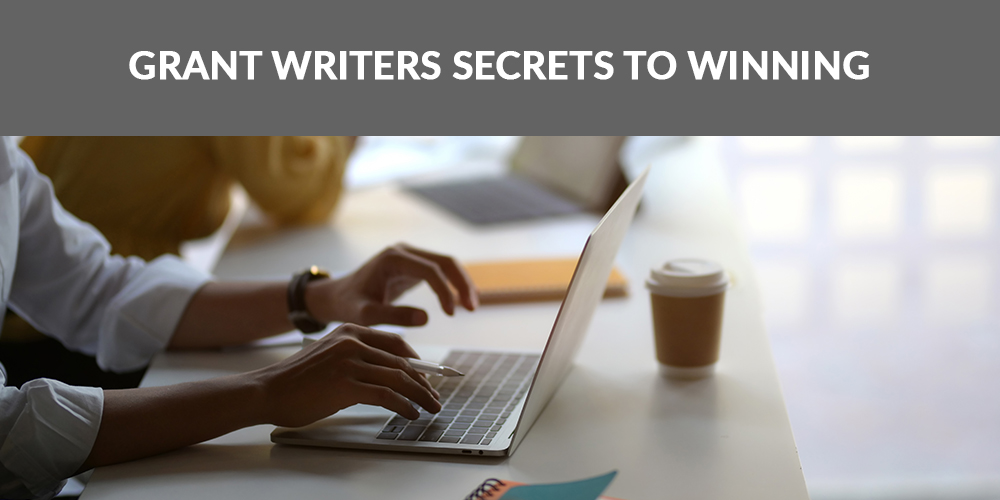Grant Writers Secrets to Winning
Grant writing offers an opportunity to secure the resources needed for any project or program. Writing a grant proposal requires special skills and knowledge, which is why grant writers are becoming increasingly important in the fundraising process. In this article, we’ll discuss some secrets to winning grants that only experienced grant writers know. These tips can help you make your funding proposals more competitive and increase your chances of success.
Research: Know Your Grant Options
Knowing which kind of grant will best suit your needs is vital when researching possible grant writing opportunities. Securing grants is an important part of any successful non-profit organization. Knowing what grant writing opportunities are available, as well as their requirements and deadlines, can help ensure that the most qualified applicants receive the resources they need to be successful. Researching grant options can also help organizations make informed decisions about which grants to apply for and how best to use them.
Grants generally fall into two main categories: fully funded and co-funded. Fully funded grants provide the total amount of project funding required, whereas co-funded grants will require the organisation to contribute up to 50% of the project costs from their own funds. It is essential that you only apply for co-funded grants when grant writing if you can prove that your organisation already has the funds set-aside and available for the project.
Most grants have specific purposes and require certain guidelines to be met in order to receive them. It’s also important for grant writers to consider other factors such as deadlines, eligibility requirements and application processes when it comes to getting a grant award.
Tactics: Focus on the Details
For grant writing, attention to detail is key. If you’re a grant writer in Sydney, understanding the importance of this skill set can have a big impact on your success. It takes more than just writing skills to create convincing grant proposals; it also requires being meticulous and persistent in following up with all the details.
Grant writers must know how to communicate effectively within their proposal and understand what small pieces require special attention, like ensuring all deadlines are met or making sure they provide all required materials in an organized manner.
Grant writers need to pay close attention to things like accurate referencing and formatting guidelines. Even if an organization has standard guidelines for submitting grants, there may be subtle differences that could make a difference between approval and rejection. Writers should also make sure they are familiar with the program requirements for their target funding agency; even small oversights can lead to project disqualification.
Narrative: Crafting a Convincing Story
Grant writers know that a successful proposal relies on the ability to craft a convincing narrative. This is especially true for grant writing, where telling a story that speaks to the foundation or donor’s mission is key to achieving success.
A good grant writer in Melbourne will use narrative elements such as characterization, setting, and dialogue to engage their audience and draw them into the story of their proposal. This kind of persuasive storytelling can be an effective way of demonstrating how the proposed project will benefit those it seeks to serve. A compelling narrative should also include relevant facts and figures that support the need for funding and demonstrate why this project is worthy of investment.
Ultimately, crafting an effective narrative requires skilful writing along with research into both the organization requesting funds and its target population.
Budget: Show Your Impact
At its core, grant writing is about creating persuasive arguments that illustrate how a project or program can help meet a funder’s objectives while demonstrating how donations will be used effectively. A successful grant writer must also be able to forecast what kind of impact the funding may have on the community or cause it supports – helping funders better understand both the direct outcomes as well as any indirect benefits such as increased public awareness or new relationships with stakeholders.
Follow Up & Learn from Mistakes
As a grant writer, it is important to follow up with the organization’s progress after submitting a grant proposal and learn from any mistakes that may have been made along the way. When following up on a grant proposal, it is important to take note of feedback provided by the funding agency. Was there something you could have done better? Were there certain aspects that were overlooked or not properly handled? Taking note of these details can help improve your grant writing next time around and give you an idea of what went wrong in the first place. Additionally, it’s beneficial to ask questions about the application process so that you can understand what worked well and why certain aspects may have failed.
Consider a Professional Grant Writer
Hiring a grant writer can be beneficial if you have little experience or knowledge of the process. Grant writers act as an advocate for your project and are knowledgeable in identifying the unique needs of each individual project. Experienced grant writers understand the application process and can provide valuable insight into what type of grants are best suited for your needs. A well-informed grant writer will be able to identify potential sources of funding and create compelling applications that maximize chances of approval. Additionally, working with a professional allows you to focus on other aspects of running your business or non-profit instead of spending countless hours on researching and writing proposals.
Conclusion: Maximize Success
In conclusion, applying for grants is not an easy task, but following these key steps can help you maximize your chances of success. Knowing the different funding options available, focusing on the details of each grant program, crafting a convincing story in your application, showing how your organization or project will benefit from the funds, and learning from mistakes are essential to winning big grants. If you find yourself overwhelmed by the process, hiring a professional grant writer may be worth considering.

